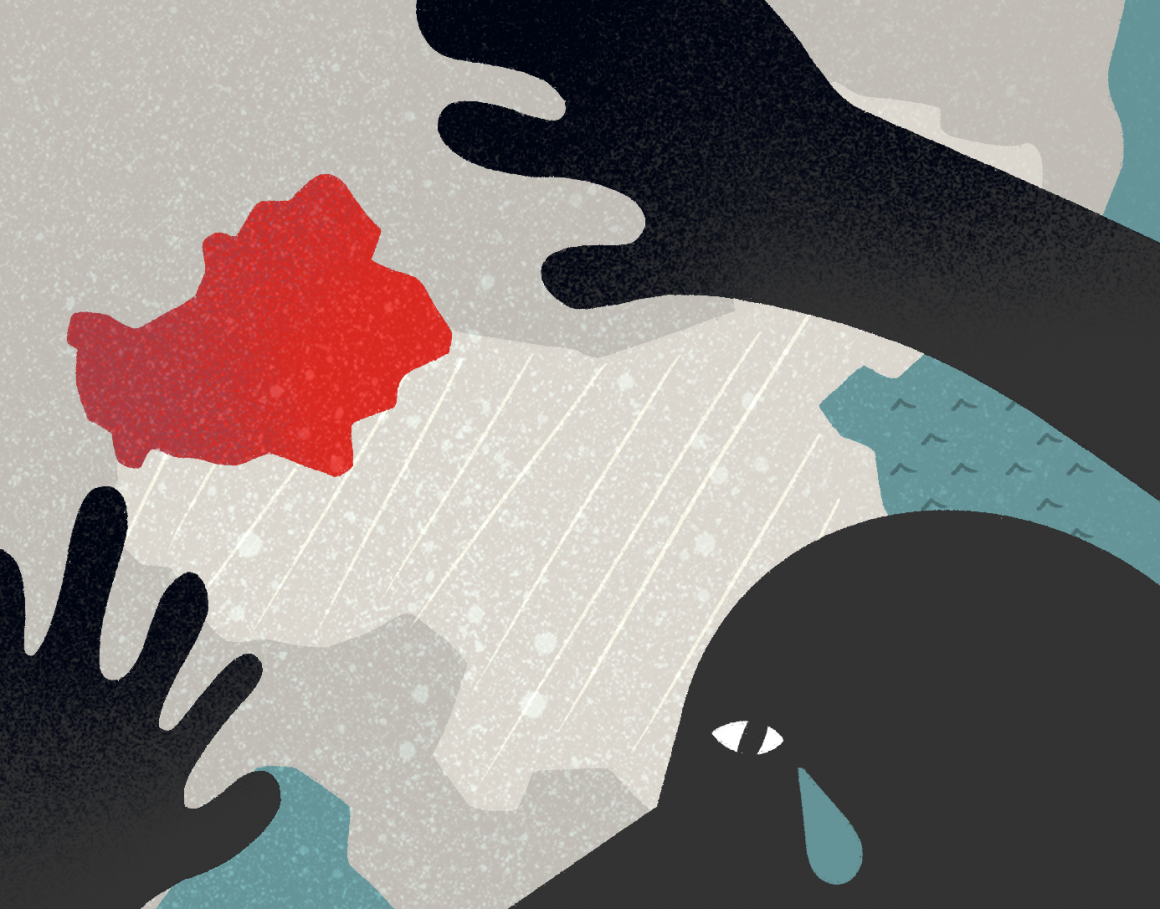
Uyghur human rights crisis in East Turkestan demands international response
By Babur Ilchi, November 29 2018 —
Recently, there has been growing media coverage about the treatment of the Uyghur people by the government of China. The Uyghurs are an ethnically Turkic people. Their nation, the Republic of East Turkestan, was annexed in 1949 and is now known as the Xinjiang Uyghur Autonomous Region, a large province in northwest China. The name Xinjiang means “New Frontier,” an insult to the people who have lived there for thousands of years and a clear statement of what China thinks of the Uyghur people and their homeland.
Currently, over one million Uyghurs have been detained and sent to internment camps designed to ‘re-educate’ those who China deems undesirables. The education provided consists of reciting and memorizing statements praising the Communist Party of China and current President Xi Jinping. It also includes denouncing the Uyghur culture and religion. Uyghurs are a traditionally Muslim people and China has used the War on Terrorism as a cover in order to slowly dismantle what civil rights the Uyghurs had in occupied Xinjiang. In addition, survivors of these camps have described scenes of torture, where inmates are forced to stand for hours on end and recite party slogans, while others are beaten routinely. Uyghurs in these camps have disappeared, only for their family to be told they are dead.
I am an Uyghur. My family immigrated to Canada in 1999, when I was three. Growing up, I didn’t really know about the complexities in East Turkestan and the lives my parents had there. And when I did learn about it, we didn’t really talk about it. There was a general consensus between Uyghurs that staying quiet and not rocking the boat would be the best way to live. To make noise might lead to a crackdown on our families back home.
But it’s clear now that this hasn’t worked. That staying quiet has been the wrong choice to make. Even without doing or saying anything, China has imprisoned our families in camps and in their homes.
Contact between those in East Turkestan and the rest of the world is severely limited. My family hasn’t been able to call, text or see those back home. However, information does get out. We’ve received photos of family and learned that two of my uncles were sent to these camps. Who knows how many families are left wondering where their loved ones are today, fearing that they may be dead or worse. The dismantling of a culture through brainwashing and ‘re-education,’ the destruction of heritage landmarks like Kashgar city, the restriction of travel across cities, the constant surveillance via cameras and officials ‘invited’ to stay in Uyghur homes and the detainment and disappearance of millions of Uyghur people have become commonplace in Xi’s China. What the Chinese government has done in East Turkestan amounts to nothing short of genocide.
There has been a growing international movement among Uyghurs to protest these Chinese injustices. Uyghurs have gathered from across the world to protest and rally against their treatment in East Turkestan. Recently, many of us attended a large protest in Geneva, Switzerland to protest during a United Nations Human Rights Assembly. Local protests in cities across the world have also come together, with groups of 50 or more rallying together.
We all have a common goal now: freedom. Freedom for Uyghurs detained and imprisoned and freedom for the nation of East Turkestan. Freedom from the constant fear and worry that our family abroad is in danger or dead. All we want is peace and an end to the brutal injustice that China is carrying out.
It has become increasingly clear, however, that a small diaspora of Uyghurs across the world cannot directly affect the situation in East Turkestan. China has changed their story about these internment camps repeatedly. At first, they denied their existence entirely. When confronted with indisputable proof, they claimed it was a vocational camp, to train Uyghurs with work skills. Then, they claimed that it was to re-educate those who posed a danger to society. When it was pointed out that these camps were illegal, China promptly changed its law to make them legal. The strategy that China has employed is one of denial and deflection. The questions and concerns of officials and citizens have been met with “no” or “so what?” The increasing influence of China in a geopolitical and economic sense has given them the confidence to take these actions without fear of any retaliation.
The UN and concerned countries like Canada, the United Kingdom and the United States have brought up these allegations only to be swatted down. But to say “we tried” and roll over is not how any country with upstanding morals should act. What the world has shown in the light of these truths is that life has a dollar value and that the lives of those who are under threat of extinction are worth less than a trade deal — or the good graces of China. To say “we tried” implies that the efforts of the tyrannical and evil will succeed. It says that the discomfort of confronting injustice is too much, that it would be easier to turn a blind eye.
The destruction of a people and their culture is not something that anyone can say they tried to stop. It is either stopped or it is not. To stand by as silent witnesses, as simple bystanders, is a complicity in genocide. We cannot say that we learned from the mistakes of the past if we do nothing to correct them now. The moral credibility of the West relies on their stance against evil. If we as a people do nothing, are we any better than the perpetrators?
